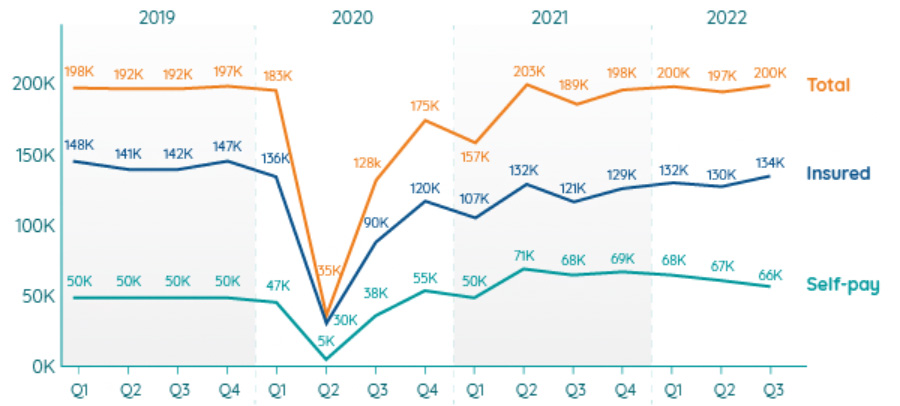With NHS waiting lists continuing to rise, demand for private sector healthcare is also spiking. The number of people accessing treatment through private insurance rose to 134,000 over the third quarter of 2022.
While for decades, consulting firms assured public health leaders that they should find efficiency savings, and that cutting out areas of ‘slack’ in the NHS would boost value for money and patient experience, the pandemic swiftly illustrated while a certain level of slack was actually necessary. The moment demand began to rise amid the first wave of Covid-19 infections, UK hospitals found themselves at maximum capacity – necessitating the implementation of emergency ‘Nightingale hospitals’ constructed by the Army, amid a state of national emergency.
In the wake of the lockdown era, however, little seems to have changed. More than a decade of austerity and spending cuts have left the institution underfunded and understaffed. Waiting lists for the NHS look set to peak at 7.3 million patients in 2023, with things seeming set to get worse. With many staff having left when it became apparent new pay demands did not value the ‘essential’ work they had done in the pandemic, chronic understaffing is raising the pressure on remaining NHS workers. As they are asked to long work hours and face higher levels of anxiety – driving more staff to quit, and waiting lists to expand further.

Amid this, the latest data from the Private Healthcare Information Network (PHIN) shows that insured private medical admissions have hit a post-pandemic high. The private health sector counted 134,000 treatments paid for by private insurance in the third quarter of 2022, as desperate patients turned to private healthcare options for their required treatment. Including self-pay options – which fell slightly, but are still higher than pre-pandemic levels – the number of private treatments recorded 200,000; the highest since early 2021.
Brett Hill, Head of Health & Protection at leading independent consultancy Broadstone, commented, “These latest figures confirm reports of growing demand for insured private medical treatment. With NHS waiting lists hitting yet another record at the start of this year January, private treatment is becoming an increasingly attractive option for people facing months of delay to access treatment.
Hill added that the growth in insured treatments in particular was indicative of a shift in employer perception. According to him, it demonstrated a “growing focus that businesses are placing on keeping their employees fit and healthy”, rather than leaving them to seek help via the NHS, or expecting them to pay for their own treatments. Amid a tightening labour market, offering access to healthcare could be an invaluable differentiator when attracting or retaining talent.
“More companies are recognising the compelling investment case for putting in place private healthcare options across their workforce to prevent the nationwide rise in economic inactivity because of long-term sickness impacting their businesses,” Hill concluded.




